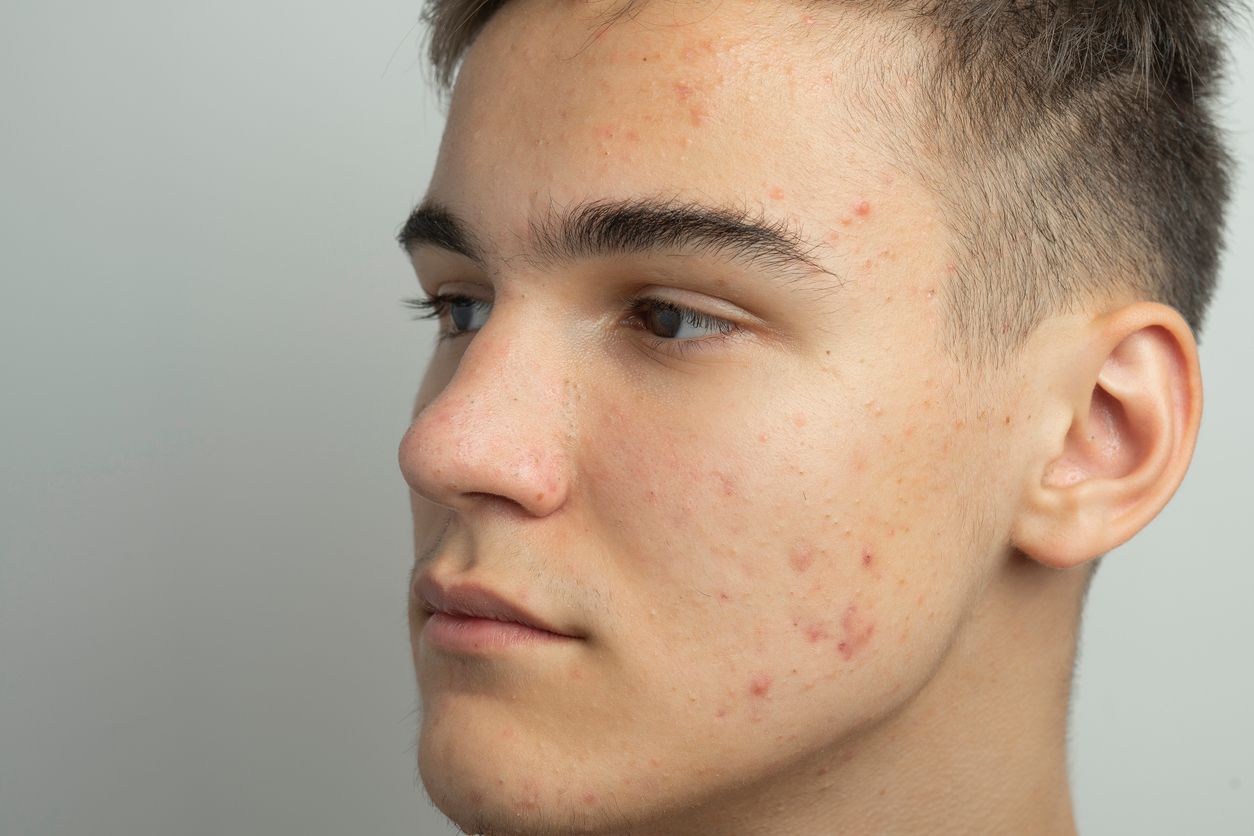Need something else?
We stock over 1102 treatments for 90 conditions

When it comes to looking after your skin, acne is one of the most common conditions you might face. Although typically present among teenagers due to hormonal changes, acne can affect people of all ages when the skin develops too much sebum and blocks the follicles.
So, how can it be treated? Luckily, there is a range of medicines that can reduce acne breakouts and swelling, including medical gels that include the active ingredient of tretinoin.
In the below guide, we’ll discuss what tretinoin is and how it works as an effective ingredient for treating acne.
Tretinoin, a form of vitamin A in the retinoid family, helps treat acne by promoting cell turnover, reducing clogged pores, and controlling sebum production
Tretinoin takes a few months to show visible improvements in acne
Other acne treatments include adapalene (another retinoid), antibiotic creams that kill acne-causing bacteria, and combination treatments that target multiple acne-related issues
Tretinoin is part of the retinoid family which is a form of vitamin A. But what does tretinoin do? Well, this type of vitamin can help treat acne in many ways such as stimulating cell turnover which leads to less clogged pores and therefore a reduction in sebum.
Tretinoin is found in many skin treatments such as acne gels, antibiotics, and oral treatments that need to be prescribed. Compared to other retinoids such as Adapalene, tretinoin is one of the older topical ingredients used to treat acne, but it’s still very effective, especially in moderate to severe cases.

Interestingly, the exact process of how tretinoin works is unknown, but it nevertheless continues to be a functional way of treating acne. What is known is that tretinoin affects the production of skin oils. When too much sebum is produced and mixes with dead skin cells and bacteria this creates blocked pores and eventually spots — tretinoin helps with this by changing the way skin develops with a reduction in oil levels.
Tretinoin is an active ingredient in many skin treatments that are usually prescribed under various branded names. Although dependent on the type of acne you have and to what severity, tretinoin is often used in gel-based treatments such as Treclin Gel.
To use Treclin Gel, a pea-sized amount is enough as the formula is very concentrated. After using a mild soap and warm water to gently cleanse the face, dab the gel onto the problem areas to create a thin layer. Tretinoin comes in different strengths for each product so it’s important to always follow the directions and use the recommended amount of gel to avoid causing further side effects to your sensitive skin.
Tretinoin is also used in oral treatments, though these will usually need to be prescribed. If creams or gels are not working for you, you should consider oral treatments.

Treclin gel normally takes a few weeks of continued use to build up an effect by killing bacteria and helping your skin to replace and remove dead skin cells. It is normally prescribed for a period of 10-12 weeks.
It can take a few months to see visible results, but tretinoin is consistently successful at reducing acne outbreaks and preventing the skin from experiencing redness and inflammation in the future.
Dealing with acne can be very frustrating. It often takes patience to create a skincare routine that’s effective for treating your kind of acne, so if one particular product doesn’t work, that doesn't mean the next one won’t.
Other types of topical acne medications include those containing adapalene. Similar to tretinoin, adapalene is a retinoid that is usually sold under the brand name Differin and is great at reducing inflammation. Antibiotic acne creams can be a great alternative since they contain active ingredients that kill bacteria (which accelerates acne symptoms and outbreaks) while combination treatments unblock pores, shred skin cells and prevent oily skin.
If you’re looking to treat acne in the most effective way then using products with the right ingredients is key at targeting your skin condition. With regular use, topical tretinoin can vastly improve your acne symptoms including breakouts, redness, inflammation and more.
At The Independent Pharmacy, we can advise you on the best ways of treating acne. Speak to one of our experts today for professional advice.
Take a free, three minute consultation to see if you could buy acne treatments from us today.
"Excellent"
We stock over 1102 treatments for 90 conditions